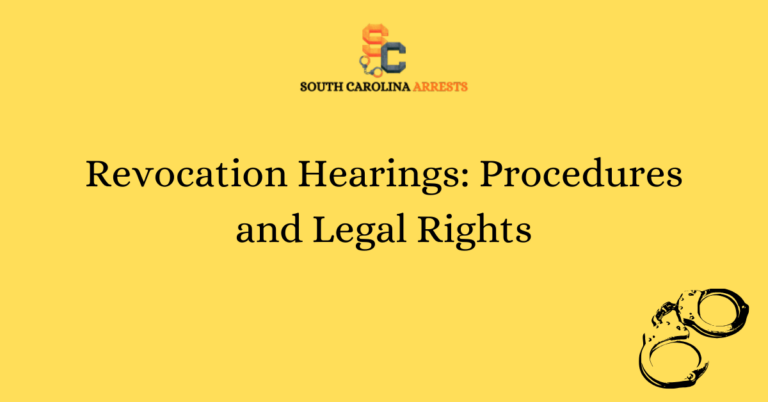Parole Hearings: Guidelines and Legal Considerations
Parole hearings are crucial legal proceedings where inmates are evaluated for potential release from prison under certain conditions. These hearings involve a thorough review of the inmate’s behavior, rehabilitation efforts, and potential risks to society if released.
Legal considerations play a significant role in determining the outcome of parole hearings. Factors such as the nature of the crime, the inmate’s criminal history, and the opinions of victims or their families are carefully weighed during these deliberations. Understanding the guidelines and legal complexities surrounding parole hearings is essential for all parties involved.
Overview of Parole Hearings
Parole hearings are crucial legal proceedings that determine whether an inmate is eligible for early release from prison under certain conditions. These hearings play a significant role in the criminal justice system, as they assess the potential risks and benefits of releasing an individual back into society before their sentence is completed.
Importance of Parole Hearings
Parole hearings serve as a mechanism for evaluating an inmate’s readiness to reintegrate into society and their likelihood of committing further crimes. They provide an opportunity for individuals to demonstrate their rehabilitation efforts and take responsibility for their past actions.
Role of Legal Considerations
Legal considerations play a crucial role in parole hearings, as they ensure that the process is fair and impartial. Factors such as the nature of the crime, the inmate’s behavior in prison, and the recommendations of parole officers are taken into account when making decisions about parole eligibility.
Factors Considered in Parole Hearings
Several factors are considered in parole hearings, including the severity of the crime, the inmate’s criminal history, their behavior in prison, their participation in rehabilitation programs, and the likelihood of reoffending if released. These factors help parole boards make informed decisions about whether to grant parole.
Guidelines for Parole Hearings
Guidelines for parole hearings provide a framework for evaluating an inmate’s eligibility for parole. These guidelines often include considerations such as the inmate’s behavior in prison, their participation in rehabilitation programs, and the potential risks to society if they are released.
Understanding Rehabilitation Efforts
One of the key factors in parole hearings is the inmate’s efforts toward rehabilitation. Parole boards look for evidence that the individual has taken steps to address the underlying issues that led to their criminal behavior and has made positive changes in their life.
Risks to Society if Inmate Released
Parole boards must consider the potential risks to society if an inmate is released on parole. They evaluate factors such as the nature of the crime, the likelihood of reoffending, and the impact of the individual’s release on public safety before making a decision.
Legal Complexities in Parole Hearings
Parole hearings involve various legal complexities that must be navigated carefully. The nature of the crime, the inmate’s behavior in prison, and the recommendations of parole officers all play a role in determining parole eligibility.
Weighing Nature of Crime
One of the most critical legal considerations in parole hearings is weighing the nature of the crime committed by the inmate. Parole boards must assess the severity of the offense and consider its impact on the victim and society when determining whether parole is appropriate.
Frequently Asked Questions
Our Frequently Asked Questions section aims to provide detailed information on parole hearings, guidelines, and legal considerations.
What is a parole hearing?
A parole hearing is a meeting where a parole board reviews an inmate’s case to determine if they are eligible for parole, which allows them to serve the remainder of their sentence outside of prison under specific conditions.
How can I prepare for a parole hearing?
Preparing for a parole hearing involves gathering evidence of rehabilitation, completing programs, and demonstrating remorse for the crime committed. It’s essential to have a solid support system and a well-thought-out release plan.
What factors do parole boards consider during a hearing?
Parole boards consider various factors, including the nature of the crime, the inmate’s behavior in prison, their rehabilitation efforts, support system, and the risk of reoffending. It’s crucial to address these aspects effectively during the hearing.
Can legal representation help during a parole hearing?
Having legal representation during a parole hearing can be beneficial, as lawyers can help navigate the complex legal process, present evidence effectively, and advocate for the inmate’s release. However, it’s essential to choose a lawyer experienced in parole matters.
What are the legal rights of inmates during a parole hearing?
Inmates have the right to attend their parole hearing, present evidence, call witnesses, and appeal the board’s decision. Understanding these rights and preparing accordingly can significantly impact the outcome of the hearing.
What happens after a parole hearing?
After a parole hearing, the board will make a decision based on the evidence presented. If granted parole, the inmate will be released under specific conditions. If denied, they may have the opportunity to reapply at a later date.







